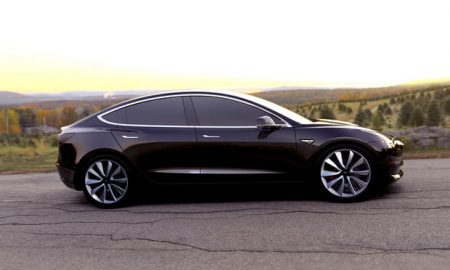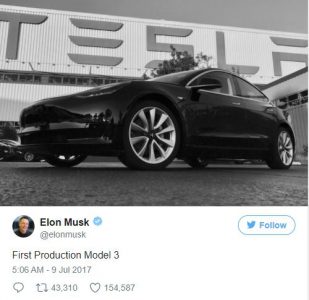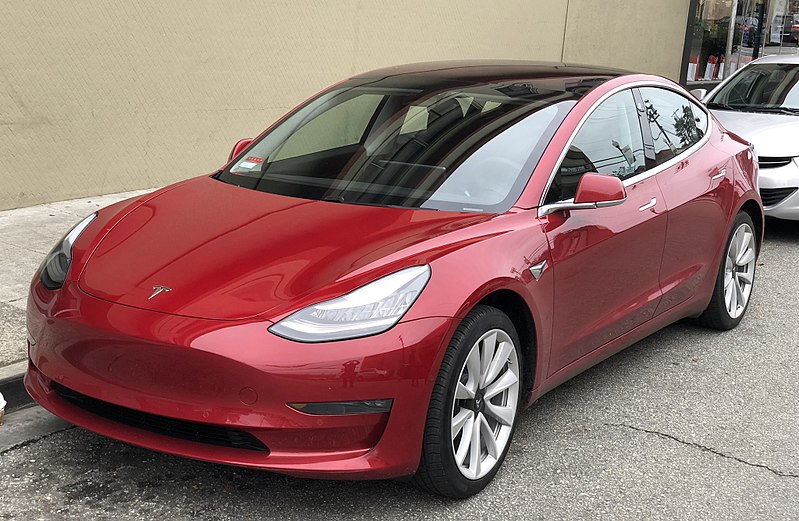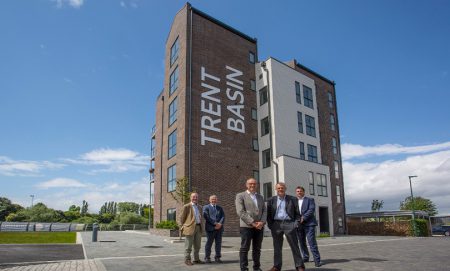Whatever you think about Tesla cars, you could never deny Elon Musk’s company of a lack of ambition. Here’s a car maker that has only been in business for a few years, building vehicles that many consider niche, and yet is currently valued more than Ford.

This is all the more amazing when you realise that Tesla has not made so much as one dollar’s worth of profit. In fact, it has made substantial losses despite selling more than 50,000 of its high cost electric cars in 2016.
Much of the reason for this industry-defying valuation is that the stock market reckons Tesla is a company very much in its ascendency. A good deal of that thinking is based on the launch of a third model, conveniently called Model 3.
Whereas Teslas to date have been expensive executive-rivalling machines for those early adopters and brand devotees, the Model 3 is a much more decisive addition. It’s set to be priced at less than £30,000 so it tackles the likes of the Nissan Leaf and BMW i3 head-on.

Is the infrastructure in place to match Musk’s ambitions?
More importantly, this brings Tesla’s take on the EV slap-bang into the heart of territory presently occupied by the likes of the Audi A3, BMW 1 Series and Mercedes A-Class, as well as the pricier Volkswagen Golfs that so many of us love.
A practical EV with the lure of the Tesla badge and a battery range that means 300 miles between recharges is realistic makes the Model 3 a far more tempting proposition than any of its electric rivals. This is why the stock market is getting in a tizzy about Tesla.
As such, the Model 3 is definitely the breakthrough model in Tesla’s line-up. It’s the one that is set to take it from a small but interesting car maker into a global player, with Tesla theorising it will see annual production soar to 500,000 by the end of the decade.

Read more: Contract Hire & Leasing























